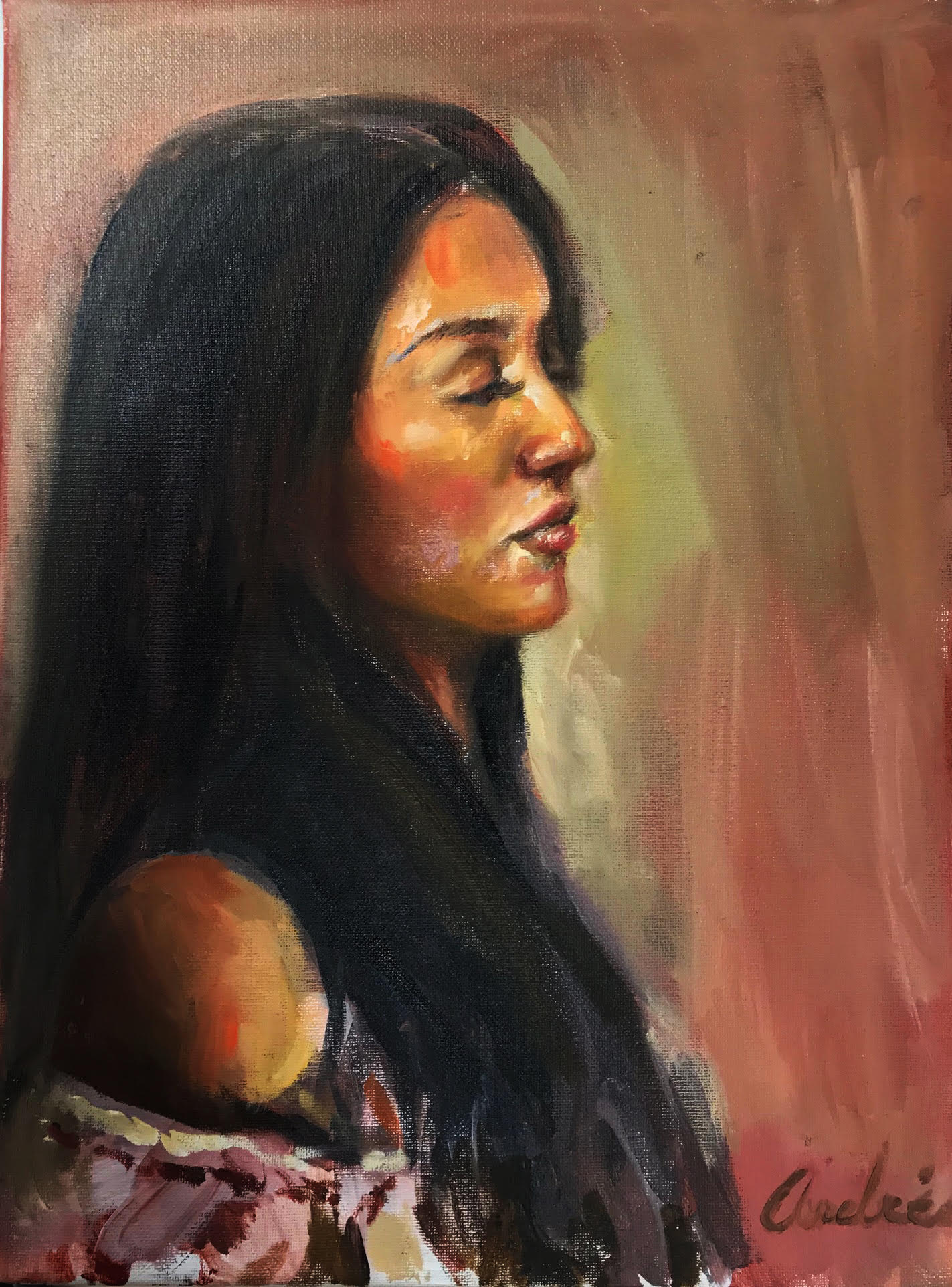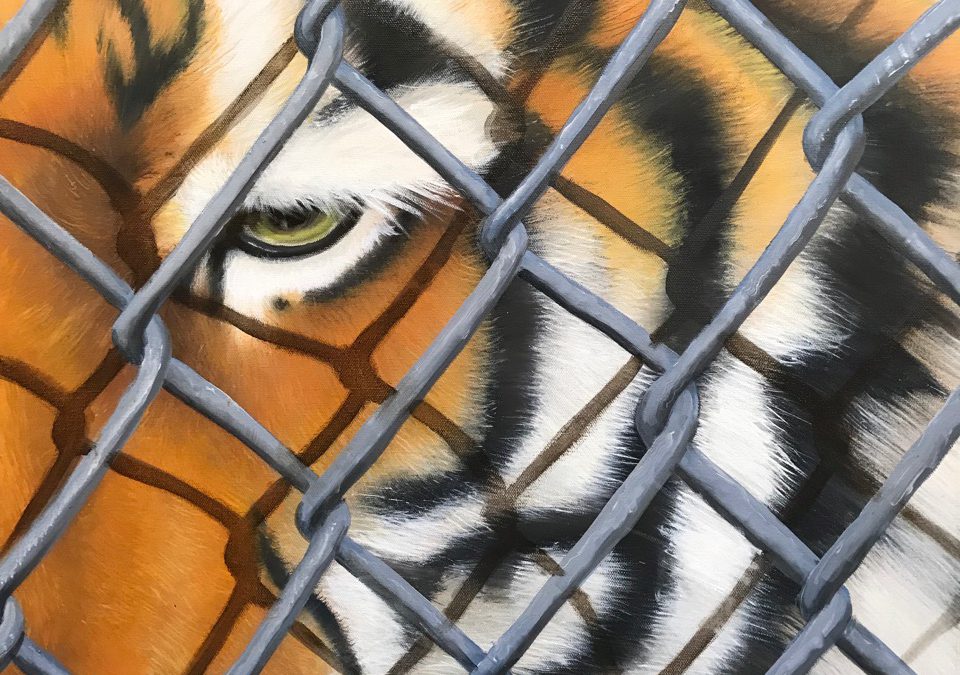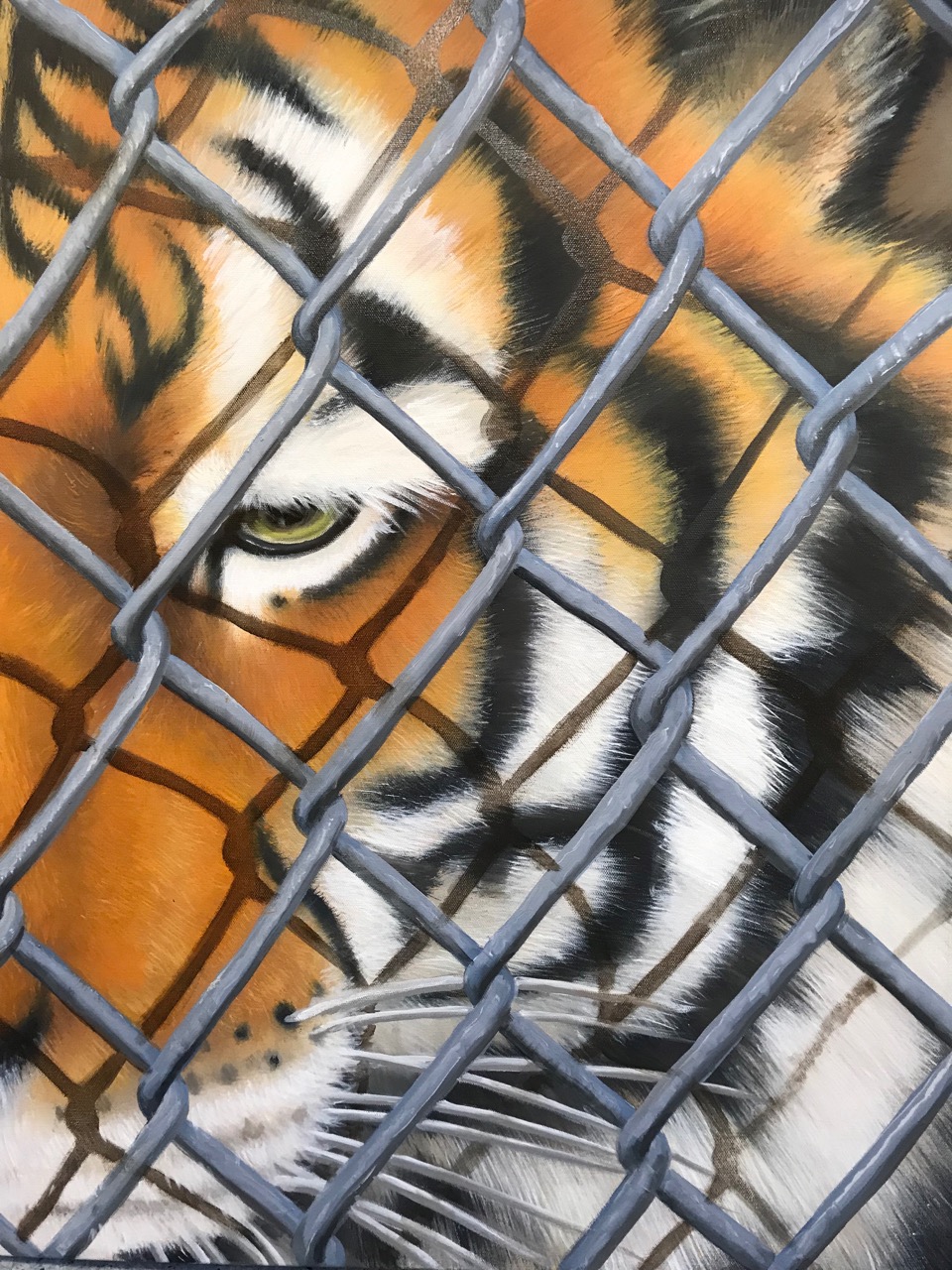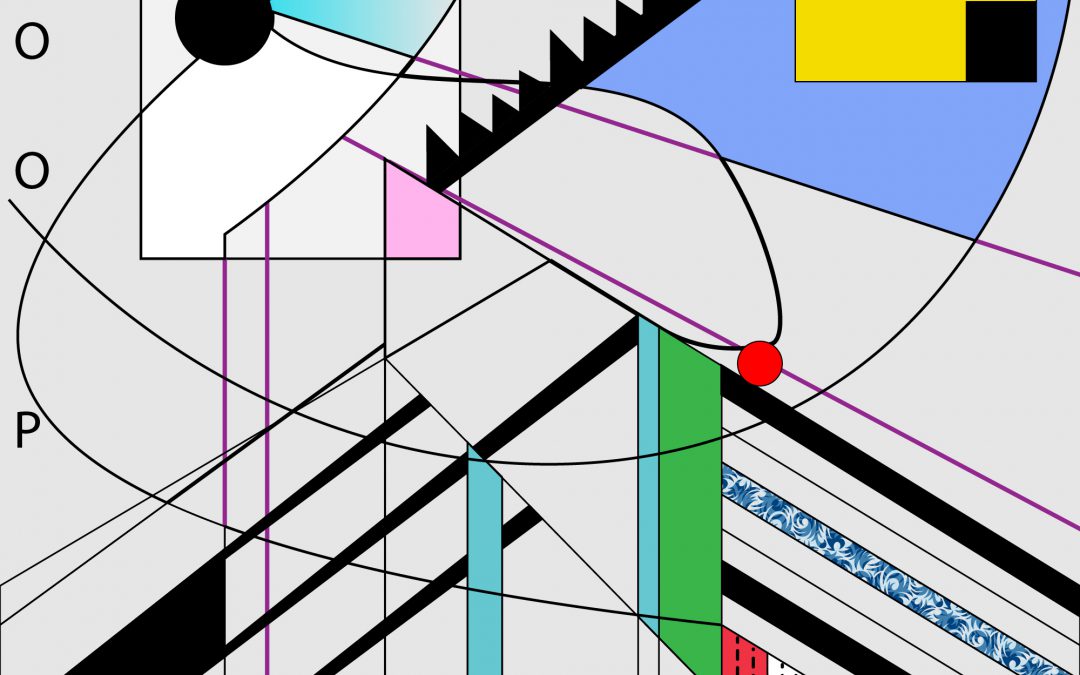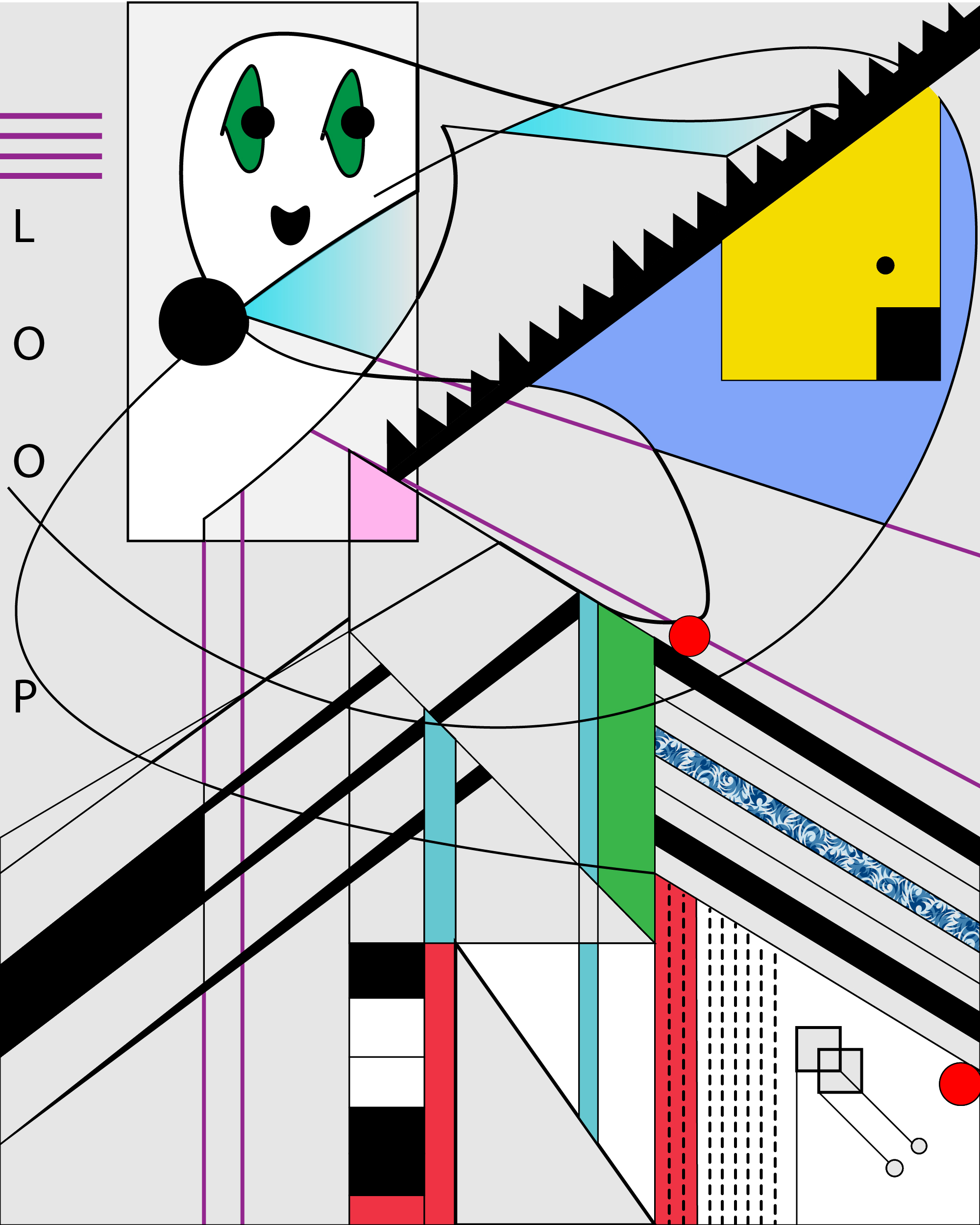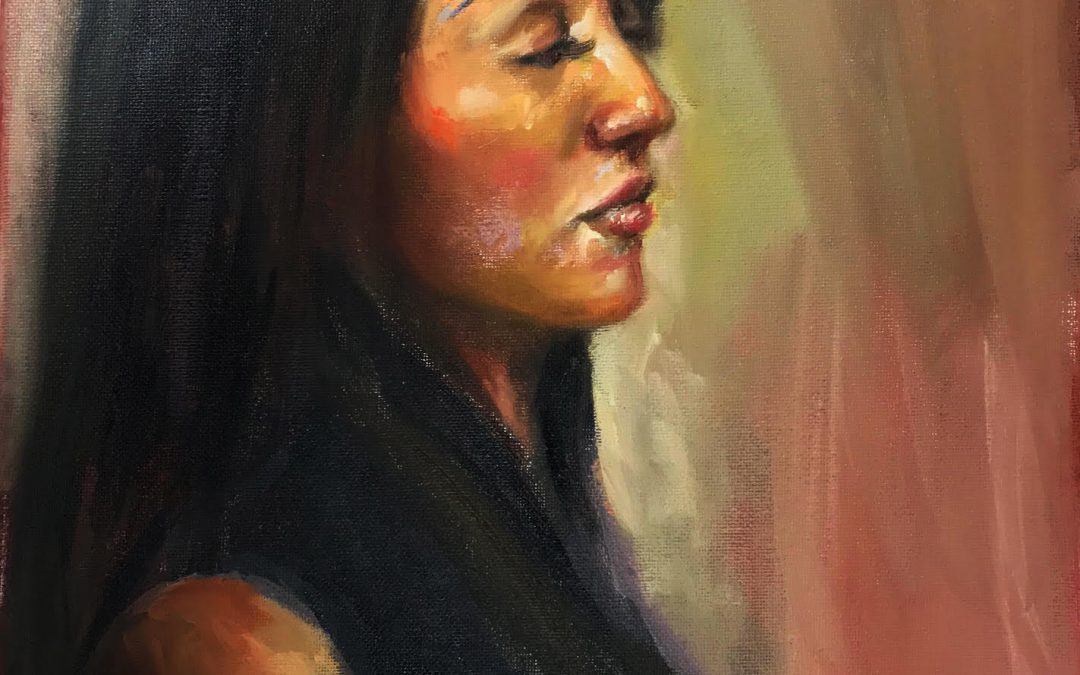
Father’s Daughter
Father’s Daughter
I grew up being the princess, plastic baby pink heels, and plastic jeweled crowns all to my disposal. I am the only daughter and the youngest of three childrenーan ascribed status and with an attitude to carry it out. The pink paint of my walls eventually faded and the jeweled crowns eventually broke. Being a princess wasn’t a reality anymore and I took my interests elsewhere. I was always a “daddy’s girl” and I could do no harm; being into literature and music as I grew up was just the start of being more like my father than any family member could see coming, especially my mom.
My mom wanted to spoil her only daughter and raise me to be just like her. She tried her best to get me to cook, her pride and joy. We started with quesadillas, then on to eggs; easy stove top cooking. I conquered the art of making scrambled eggs, eating them almost every day until my brother made me a runny batch, and I have not liked them the same since. After the eggs, I didn’t see the point of continuing further. Regardless of whether I could cook, my mother still made the food and would remind me almost every night how badly she wished I could cook or how I have to learn how to cook “for when I have a family.” This nagging only made me more distant. The sound of my mother’s voice complaining from the echo of the kitchen made me walk away.
The kitchen was only the start. Eventually, my joy of clothes diminished. As a child, she would spoil me with new clothes, buying such bold and pleasing outfits for me to wear. My taste changed as I got my own sense of style, and she found herself tired of returning clothes that just didn’t work for me. Her baby pink blouses did not enthuse me in comparison to black band t-shirts. She’d then offer to buy me clothes of my choosing, but I’d tell her, “No, thanks,” as I always had a book in mind. She turned away, frustrated at with my priorities. By the time I was fifteen, she eventually came to the conclusion that it was probably best that I wanted to buy books over clothes. My mom’s way of treating her daughter went from buying me clothes to taking me to a bookstore, leaving me alone for two hours as I roamed, and maybe buying me a book if I was on my best behavior. I thought that was awesome, however, she probably didn’t at first.
My mom used to tell me as a kid that I wasn’t allowed to call her my “best friend.”
“I am not your friend, I am your mom,” she said. As a kid, this was so plain to me, because why would I call my mom my best friend? I used to have a bitter taste when my friends would refer to their moms as best friends, because I didn’t understand wanting to be with my mom more than necessary. I’ve spent the most time with my mom, to a fault, as if she were a best friend. I know every step to take to make her angry, as she does with me. My family likes to remind me that when I was a baby, I used to cling to my mom. I lost count of the times my grandmother told me that I never wanted to be with anyone other than my mom.
“We used to try to hold you and play with you, and you would just cry until your mom picked you up,” my grandmother said.
“Quincy was always momma’s girl,” my aunt chimed. I found this hard to believe as a teenager, as my mom and I stepped on each other’s toes the most in my household. My loud, argumentative mouth countered my mother’s authority throughout my childhood. When you have one daughter, what else would anyone expect? It is only natural for mothers and daughters to become annoyed with each other. It is obviously not the same for every mother and daughter, however, there is always this sense of annoyance from the daughter, because we think the mother is hovering and pushing for no reason. For a mother, there is a struggle, because most of the time, they try to get the best out of their daughter, and some just don’t know the right way to go about it. As an adult, I can now appreciate how my mom treated me, or maybe I can appreciate it because she relaxed more once I turned eighteen.
My mom would tell me, “You are your father’s daughter,” which almost had a hint of resentment because I wasn’t my mother’s daughter. However, I think most would agree that my interests and personality were nothing like my mom’s. As a teenager, I embraced this. I thought it was a good thing. I wanted to be my dad, I wanted to be a lawyer like my dad; my desire was focused on being like my dad. I sought my dad’s approval rather than my mom’s, which I think annoyed her, naturally. The housewife lifestyle my mom lived was never in my plans. I couldn’t wrap my head around the mom haircut, the apron attire, and the life in the kitchen. As the only daughter, I think people just expected me to shadow my mom, and I grew up doing the opposite of people’s expectations. There was something so attractive about not being what everyone thought I’d be.
The frustration grew more as she realized that our personalities were not matching up. I had a strong case of introvert, which started taking place at the age of twelve. My mom was an extrovert, and for most of my life, so was I. You can imagine the dramatic shift when my mom started realizing that I spent much more time alone than I did with people. Though I never found controlled isolation a problem, she did. She thought I was depressed, which is apparently not an abnormal reaction when you witness your loud, annoying, ham of a daughter become a reserved teenager, gripping to anything but social interactions. The amount of times when she yelled at me for being quiet are countless. It always started in the car.
“What’s wrong?” she asked, annoyed
“Nothing,” I answered, honestly.
“You better not have a bad attitude right now, I’ll just take you home.” This threat was a frequent occurrence. I would often argue and defend myself, and tell her, “Now I have a bad attitude because you’re assuming I did when I didn’t.” It eventually got to the point where I wouldn’t argue and instead continue my silence. She had to learn somehow that someone being quiet wasn’t a personal affliction, or perhaps I was just thinking, God forbid. She started arguments that were never necessary, yet totally necessary to figure out her only daughter. This frustrated me just as much as it did her. I didn’t think I was doing anything wrong by not socializing all the time, and I sure as hell didn’t want to be nagged for something I didn’t understand. These comments about my attitude evolved into, “You look like you have a lot on your mind,” which was most of the time true.
My dad has a chronic anxiety disorder, which was a massive change for my mom and the rest of my family as it progressed. Along with not being able to understand her daughter, she was trying to make sense of anxiety with my dad. There is nothing to make sense of, I’ve concluded, it’s a mental disorder, incurable, though manageable. By nineteen, I realized that I had dealt with a lot of anxiety myself since I was ten, and it was only getting worse. I didn’t tell my mom because I didn’t think she could handle more than what was on her plate; sensitive and strong, she held our family together as she saw her husband suffering. I compromised because of this, figuring my anxiety was just a part of being a teenager. By the final year of my teens, I told her about my anxieties as subtly as I could, which was not taken so subtly. For her sake, I watered down as much as I could, explaining the knife I felt in my chest as if the knife were rubber, not causing too much pain. It wasn’t that she didn’t believe me at first, it was that she didn’t want to believe her daughter was dealing with what her husband dealt with. As she listened to me, I became more vocal. I would tell her about my feelings and my thought process. I shared the intrusive thoughts of my own criticism that bled through everything I did and my immobile state when I got overwhelmed with the possibility of failure. She responded with that motherly certainty and concern, “You sound just like your father.”
My selfishness and independence started diminishing as I got older and I found a common ground with her throughout the years. Her favorite activity besides cooking had always been writing. The times I left home to go read, I asked her to join me. As I read my depressing Russian literature, she wrote; both of us with earphones plugged in. If someone were to look at us, they may say we were disconnected with each other, because the sight of us with earphones in, doing separate things as a mother and daughter may have looked as though we were ignoring each other. But we were together.
I looked closely at my parents and how they worked as such opposites. Amongst moral values, one was music. That was one of the compromises between my parents. They agreed that classic rock will forever be better music than the stuff we listen to now. When we were children, my mom didn’t allow us to listen to pop radio. She didn’t want us to look up to those pop stars, like Britney and Christina, so we grew up on classic rock. My mom leaned more toward R&B, where my dad leaned more toward metal and punk, and I being my father’s daughter, leaned the same way. My mom couldn’t really tolerate much angst in 90s alternative rock, and of course, this was the anthem of my entire adolescence. I discovered my favorite band, Nirvana, at the age of twelve, and my mom didn’t understand the joy I got from this band. I felt a freedom listening to them and was happy that it was a band that I discovered on my own. I made her listen to an acoustic, live version of a song by Nirvana called “The Man Who Sold the World.” She immediately knew it was not a Nirvana song. She looked at me with certainty and said, “This is Bowie.” I nodded my head. Without my force of opinion, she said, “I think I actually prefer this version.” I had successfully moved her to another common ground. I shake my head as she now asks me to play Radiohead’s “Special” song or the joyful song that is Green Day’s “Boulevard of Broken Dreams” as she cooks in the kitchen.
One day, while we were drinking coffee, I asked my mom for some advice on how to cure a hangover. She grabbed the sugar from my hand and told me, “No sugar in coffee.” I wrote this down because I found it comical that my mom was willing to give me hangover advice. I then realized I wanted to make a list of advice my mom has given me. That same week, I found my mom in the kitchen, her version of an office, and she was dancing to Led Zeppelin’s “D’yer Maker” while wrapping her maroon apron around her waist. I asked her what she was cooking. She said tacos and rice. Not just any rice, of course: Spanish rice. She looked over at me from the stove, her wooden spoon in hand, and pointed it at me. “Learn how to make Spanish rice and you will make your husband happy.” I noted the certain charisma a cook has, but even more so, a mother who cooks. Her favorite place in the house was the kitchen; this is where she felt most free. The place that I find myself leaving the quickest to avoid cooking or doing kitchen chores is the place my mother thrives. I didn’t feel so annoyed that night and asked her if she needed help. Not giving it a second thought, she said yes, and walked me over towards the rice. Her face brightened as she looked over at me pouring the tomato sauce in the rice and mixing it. That night after dinner, she offered to drive me to the bookstore to buy that Existentialist book I’d been wanting.
I know my growing up had a lot to do with the change in our relationship. As the years have passed, I’ve grown closer to her. I’ve had to get over myself and my defiance, she had to get over who she thought I would be. Maybe it was those hard circumstances in our life that brought us together. In the direst of circumstances, I’ve had to soften and realize that I need my mom much more than I think I do. I can’t say she’s my best friend, because she would be upset with me, but our mother-daughter relationship is something much more. My admiration and love for my dad never ceased, but I’ve gained a whole new admiration and love for my mom. Between the yelling and the tense silence, we found our medium.
When she writes me little letters from time to time, she always writes, “It’s an honor to be your mom.” I don’t think I could have accepted that years ago because I didn’t understand it. Now I can accept it and proudly say it’s an honor to be her daughter. My friends who know my mom will read this and agree that it is an absolute honor to be her daughter. I hear it constantly: “I love your mom…Your mom is the best…Your mom is so sweet.”
And I agree with them just about every time.
Writer: Quincy Roach is currently attending Fullerton College in pursuits of becoming a teacher. This is her first published creative nonfiction piece.
Artist: Andres Martinez was born in Mexico City and is inspired by the people of his home country. He has adopted Chicano arte and has come up with his unique style. Through murals, drawings and paintings, he relates the message of struggle, achievements, and common people. Andres commemorates and emphasizes the struggles and existence of the gente that he portrays. With these portraits, he would like his audience to not only admire but ponder who these everyday people are and what stories they have to tell.
